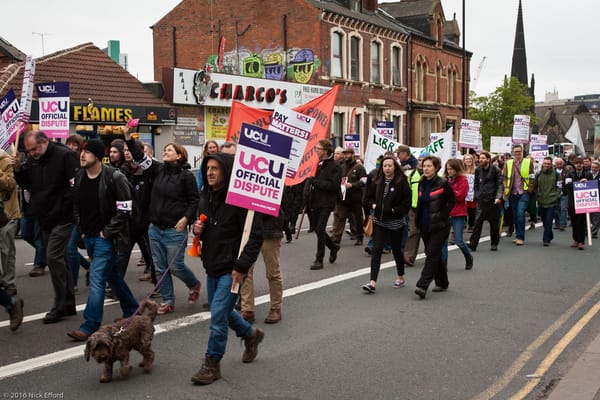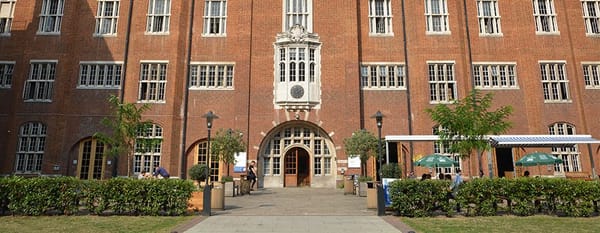Space: The Final Frontier
Felix spoke to Chris Banks, Director of Library Services and Assistant Provost (Space), about the Space Sharing Programme, in light of the ongoing problem of space at the College

The College has, in recent years, struggled with the amount of space available on the South Kensington campus, and is separately making decisions like the sale of St. Mary’s and the construction of White City – but projects are still ongoing to optimise the space available. One such project is the Space Sharing Programme, sponsored by Chris Banks, the Director of Library Services and Assistant Provost (Space).
The programme aims to investigate the potential for sharing space between departments and faculties within the College, in order to allow for a growing student cohort. The overall student numbers at Imperial have increased by almost 20% in the last five years, between the 2013-14 and 2018-19 academic years.
Currently, teaching space in the College appears heavily underutilised as a whole. The national Research England benchmark is currently for space to be utilised at 35%, calculated on the hours a room is available, time spent using the room and how full the room is during use – but Imperial only manages around 22% based on recent data.
The concept is that when space is not being used by a department, it should be available for use by somebody else, whether for teaching, meetings, conferences, or student study space. The current system means that each department owns and manages its own space with a very high degree of agency, which is then often inaccessible to others. Sharing potentially addresses the space shortage problem, and recent investment in teaching spaces is beginning to address the disparity of quality of available space.
While the potential benefits are clear, there are also drawbacks and concerns from the departmental side. For example, should a space be shared, whose responsibility is it to clean it up, to maintain it, or to pay to replace equipment? The programme seeks to address these concerns by establishing behavioural expectations or standards with regard to room sharing and usage; however, gaining ‘mutual buy-in’ from departments has been a challenge, which is needed to get this type of project started. As Chris puts it, “sharing is caring”.
One example includes construction plans for White City, in which a colossal joint basement floor was proposed which would connect through multiple buildings and departments as a linked space, available for learning, meeting, exams, events and the like. The plan was not taken forward, and instead each building is a separate entity; the opportunity for shared space was not followed through.
There are two major ongoing projects as part of the programme: one on data collection, dubbed ‘Occupancy Insights’, which tracks WiFi connections throughout the College to determine room usage; and another on developing and implementing a new system for room bookings.
Occupancy Insights is still in an early implementation stage, with only a few people from across the College having access to the growing data set. The project is being taken slowly, as there is a concern with the data might be misinterpreted or used to ‘name and shame’ people for under-utilisation of space. Chris stressed that this is not the aim – the idea is to gain solid data on usage to inform decision making and planning, which is an area the College needs to improve on at a wide and holistic level.
The data has many potential uses. It can show whether a large space is being booked for too few students, or whether space is being booked out for too long – such as blocking out three hours for seminars that end after only two. On the more nuanced level, it can shed light on whether the utilisation gap – the 13% difference between current utilisation and the goal of 35% - is actually more reasonable than it first appears. For example, the wind tunnel in the Roderic Hill building takes up a colossal amount of space and will only play host to a small amount of people at once, even though it provides high value.
It can also help to optimise timetabling – if, hypothetically, there is heavy underutilisation in 9-10am slots, it might be possible to expand student numbers and just schedule more lectures, labs, and tutorials in 9-10am slots. The data is also aiding Chris in supporting the bid for converting basement space in the library, which could accommodate a large group study area for an extra 200 students. The data has also been used recently to determine the effectiveness of a fire evacuation drill.
There is also a long-term intent to use the data set for modelling purposes – if the College can predict the effect of planned changes to curriculums, or more ambitiously the flow of students around hypothetical White City construction plans, then it allows for optimisation before issues even arise.
The room booking system revitalisation is also aimed at smoothing processes across departments. Currently, the high agency of faculties and their ownership of space has led to the development of at least 13 different systems across the College for room booking and related processes, each used exclusively within a limited range of departments or buildings. This makes space sharing virtually impossible. Additionally, most of those systems have human elements as a fundamental component, and are often administered via email. Chris describes it as a “noisy process”; one that is frustrated by human error, in which visibility and accessibility are limited, and which collapses as soon as an individual goes on holiday.
There are also regular problems with double-booking through different sources, as two different programs are used to book for teaching purposes and for conferencing and events – CELCAT and KX, respectively. Each of these can be used to book, but bookings from each can overlap. A systems fix for this would be expensive and would incur a large technical debt, and so again the focus is on establishing protocol changes that may ensure problems such as double-booking do not arise.
However, the potential long-term end-goal is much more ambitious. The aim is to explore the development of a ‘one-stop shop’ system, in which every room in College is visible and bookable. Additionally, it would feature the ability to search for free rooms based on certain criteria, such as facilities in the room or size. Chris also added: “my end goal is absolutely to get more rooms viewable and bookable by students as well”, for study purposes.
She also mentioned that James Medler, the former DPCS who developed the new interface for room bookings for the Union, is working on the project – creating visualisations of how the different room booking systems across the College currently interconnect.
One of the problems with long-term projects at the College is managing to effectively communicate with students. Although consultations may be run, the student turnover year-on-year often means that most of a current cohort remain unaware of any improvements and changes being worked on, leading to frustration.
Chris said: “We’re aware of the potential for information overload, so we need to choose the point at which we reengage – either for further consultation or to inform people that something is actually happening. If there is a big clamour, ‘why is no one doing anything about X’, I’d certainly like to be able to say we are doing something about it. The information is there. But balancing the communications with timeliness, with everything else that’s going on and everything we have got to deliver, is difficult. We want to deliver – but we can’t just flick a switch.”
“Nobody comes into work to do a bad job. It’s not that, but rather people being frustrated. We’re in a situation with 20+ departments doing things 20+ ways, and in some ways have made things difficult for ourselves, which is why we are trying to optimise processes and expand systems to include things like student bookings. A lot of this work is about surfacing those differences, and seeing if we can establish a process and direction for improvement, to make the whole thing much simpler – but it takes a lot of time and resource to do so.”







